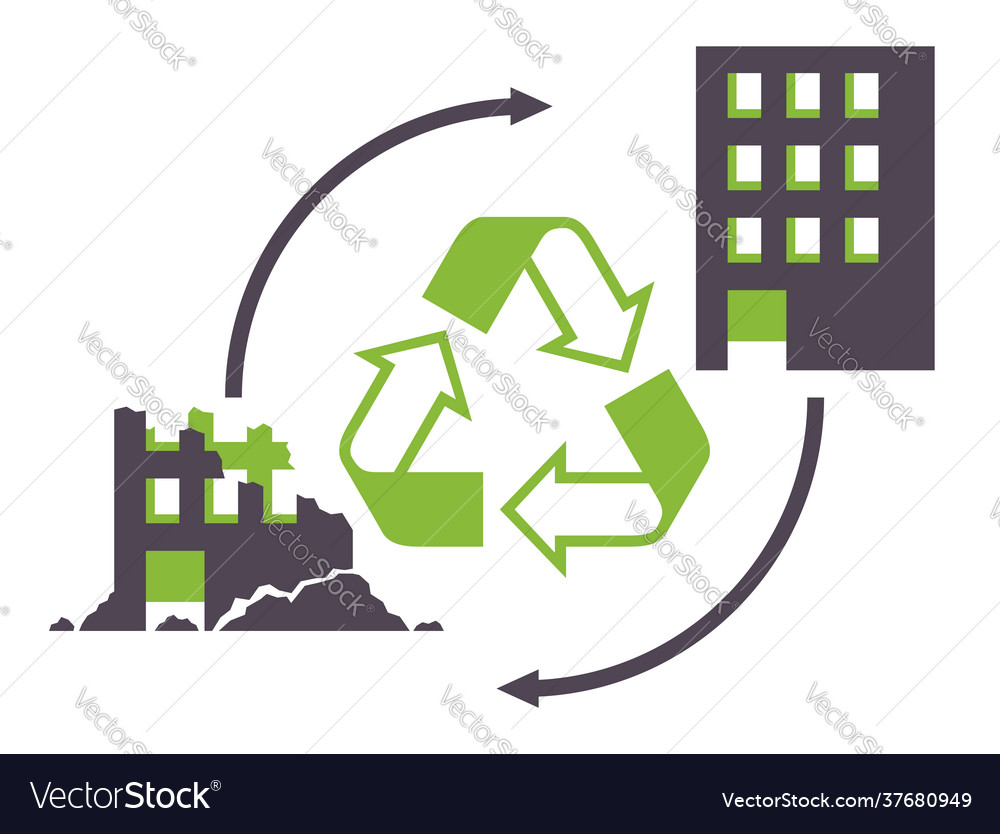Demolition debris recycling is a crucial step in reducing the environmental impact of construction and demolition activities. The process involves sorting and processing materials from demolished buildings, such as concrete, asphalt, brick, and metal, to create new products. Republic Services, a leading provider of waste management and disposal services, has been at the forefront of demolition debris recycling efforts. In this article, we will delve into the world of demolition debris recycling, highlighting the benefits and challenges associated with this practice, as well as Republic Services’ innovative approaches to tackling this issue.

The Problem of Demolition Debris
Demolition debris is a significant contributor to the staggering amounts of waste generated in the United States. According to the Environmental Protection Agency (EPA), construction and demolition activities produce over 534 million tons of waste per year, with demolition debris accounting for a substantial portion of this waste. This waste can have severe environmental consequences, including air and water pollution, as well as the destruction of natural habitats.
The Benefits of Demolition Debris Recycling
Demolition debris recycling offers numerous benefits, both environmental and economic. Some of the most significant advantages include:
- Conservation of Natural Resources: By reusing and recycling demolition debris, we can conserve natural resources, reducing the need for extracting and processing raw materials.
- Reduced Waste Disposal Costs: Recycling demolition debris can significantly reduce waste disposal costs, as recyclable materials are diverted from landfills and used to create new products.
- Job Creation and Economic Growth: Demolition debris recycling can create new job opportunities and stimulate economic growth, particularly in the construction and manufacturing sectors.
- Environmental Protection: Recycling demolition debris helps to minimize the environmental impact of construction and demolition activities, reducing greenhouse gas emissions and mitigating the effects of climate change.
Republic Services’ Demolition Debris Recycling Efforts
Republic Services has been a pioneer in demolition debris recycling, with a strong commitment to sustainability and environmental responsibility. The company’s demolition debris recycling program involves the following steps:
- Collection and Sorting: Republic Services collects demolition debris from construction sites and sorts the materials into different categories, such as concrete, asphalt, and metal.
- Processing: The sorted materials are then processed into raw materials, such as crushed concrete and recycled asphalt.
- Manufacturing: The raw materials are used to manufacture new products, such as aggregates, cement, and asphalt pavement.
Republic Services’ demolition debris recycling program has been highly successful, with the company recycling over 10 million tons of demolition debris per year. This effort has not only reduced waste disposal costs but also conserved natural resources and minimized the environmental impact of construction and demolition activities.
Challenges and Opportunities
While demolition debris recycling offers numerous benefits, there are also challenges associated with this practice. Some of the most significant obstacles include:
- Lack of Infrastructure: The lack of infrastructure, including recycling facilities and transportation networks, can hinder the recycling of demolition debris.
- Contamination: Contamination of demolition debris with non-recyclable materials, such as asphalt shingles and plastics, can reduce the quality of recyclable materials and increase processing costs.
- Market Demand: The demand for recycled demolition debris products can be limited, making it challenging to find markets for these materials.
Despite these challenges, there are also opportunities for growth and innovation in the demolition debris recycling industry. Some of the most significant opportunities include:
- Advances in Technology: Advances in technology, such as more efficient sorting and processing equipment, can improve the quality and quantity of recyclable materials.
- Increased Market Demand: Growing demand for sustainable and environmentally responsible products can increase the market for recycled demolition debris products.
- Government Support: Government initiatives and policies can provide incentives and support for demolition debris recycling, encouraging more companies to adopt this practice.
FAQs
Q: What types of materials can be recycled from demolition debris?
A: Common materials that can be recycled from demolition debris include concrete, asphalt, brick, and metal.
Q: How does Republic Services sort and process demolition debris?
A: Republic Services sorts demolition debris into different categories and processes the materials into raw materials, which are then used to manufacture new products.
Q: What are the benefits of demolition debris recycling?
A: Demolition debris recycling offers numerous benefits, including conservation of natural resources, reduced waste disposal costs, job creation, and environmental protection.
Q: What are the challenges associated with demolition debris recycling?
A: Challenges associated with demolition debris recycling include lack of infrastructure, contamination, and limited market demand.
Q: How can I get involved in demolition debris recycling?
A: You can get involved in demolition debris recycling by contacting Republic Services or other waste management companies that offer this service, and by supporting companies that use recycled demolition debris products.
Conclusion
Demolition debris recycling is a crucial step in reducing the environmental impact of construction and demolition activities. Republic Services has been a leader in this effort, with a strong commitment to sustainability and environmental responsibility. While there are challenges associated with demolition debris recycling, there are also opportunities for growth and innovation. By supporting companies that prioritize demolition debris recycling and advocating for government initiatives and policies that encourage this practice, we can work towards a more sustainable and environmentally responsible future. As the demand for sustainable and environmentally responsible products continues to grow, the importance of demolition debris recycling will only continue to increase, making it an essential component of our efforts to reduce waste and protect the environment.
Closure
Thus, we hope this article has provided valuable insights into The Importance of Demolition Debris Recycling: A Look into Republic Services’ Efforts. We appreciate your attention to our article. See you in our next article!